Who is Ketanji Brown Jackson, the incoming Supreme Court justice? And the inside story behind her name
She has spoken about her upbringing, her family and her views on race.
When word came that Supreme Court Justice Stephen Breyer was retiring, the spotlight immediately shifted to who might replace him with most attention focused on Ketanji Brown Jackson, who clerked for Breyer about 20 years ago.
That spotlight grew even brighter when it was revealed that President Joe Biden would nominate her as the first Black woman to sit on the nation's high court.
Biden introduced Jackson to the American public back in February as "an exceptionally qualified and historic nominee."
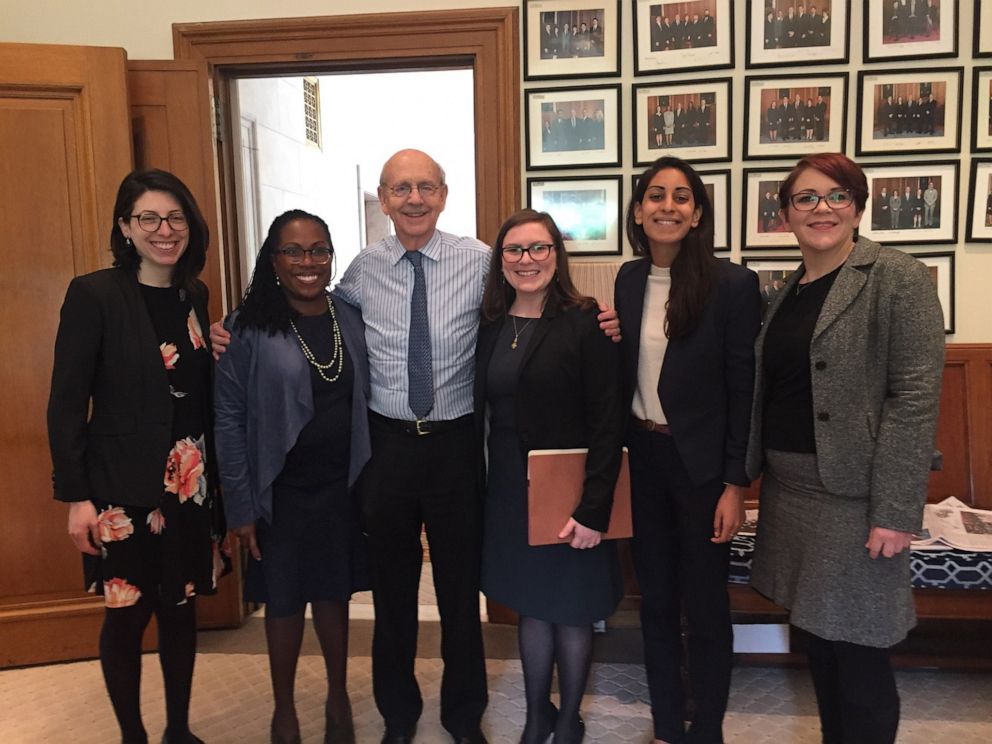
A Harvard Law School graduate who rose to become a federal appeals court judge, Jackson, despite her professional and academic accolades, has said she considers simply working hard throughout her life to be a main reason she's gotten to where she is today.
She was born 51 years ago, in 1970, in Washington, D.C. Her parents, both public school teachers, had moved to Washington from Miami in the post-civil rights era.
She has recounted in a 2017 speech that her parents, wanting to show pride in their African ancestry, asked her aunt, who was then in the Peace Corps in Africa, for a list of African girl names.
Taking one of her suggestions, Jackson's parents named her Ketanji Onyika, which she said they were told translates to "lovely one."
In 2017, Jackson, in a lecture at the University of Georgia School of Law, revealed more of her personal side, reflecting not just on her legal career -- but on dealing with motherhood at the same time.
"Right now, in fact, I'm in that peculiar stage of life when I experience near-daily whiplash from the jarring juxtaposition of my two most significant roles: U.S. district judge on the one hand and mother of teenage daughters on the other," she said.
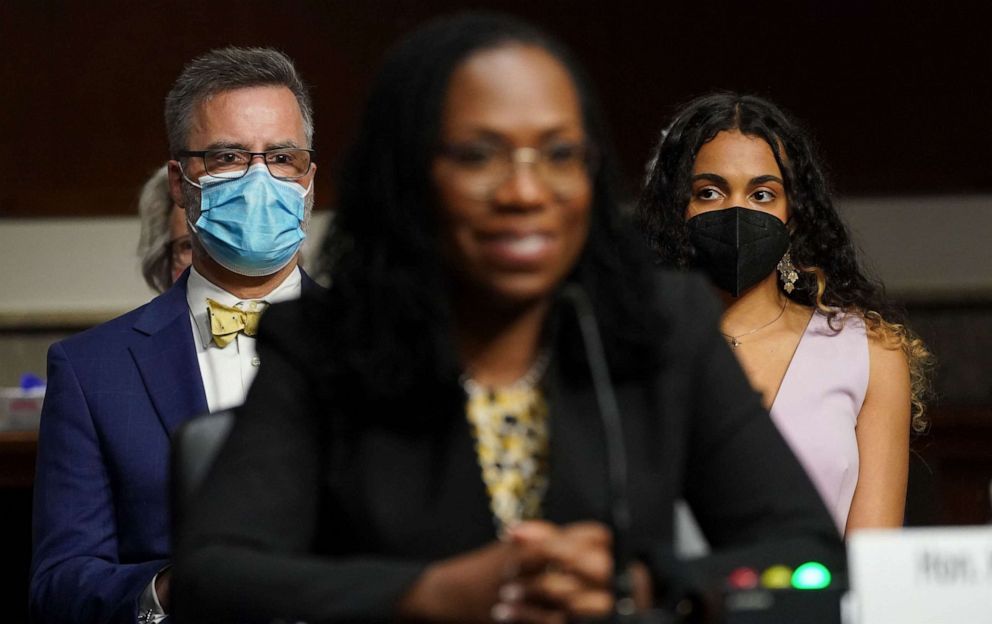
Jackson and her husband Patrick, a doctor, have two daughters, Talia who was 16 and Leila who was 12 years old at the time she told that story. During that same talk, Jackson said her family values include respecting everyone and making your best effort in everything you do.
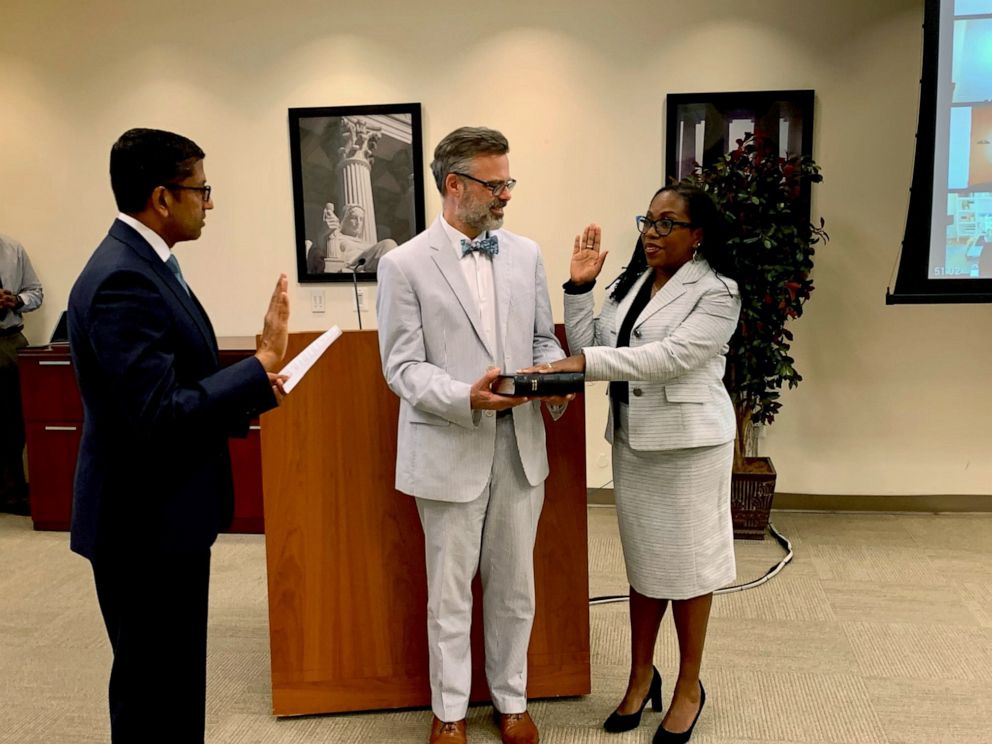
"In our family, we have a mantra that emphasizes prioritization on work over play as one of our first principles," Jackson said. "As the girls would testify, 'do what you need to do before what you want to do' is a constant refrain in our house."
Jackson has served on the Court of Appeals for the D.C. Circuit, considered the most important federal court next to the Supreme Court. It has jurisdiction over cases involving Congress and the executive branch agencies.
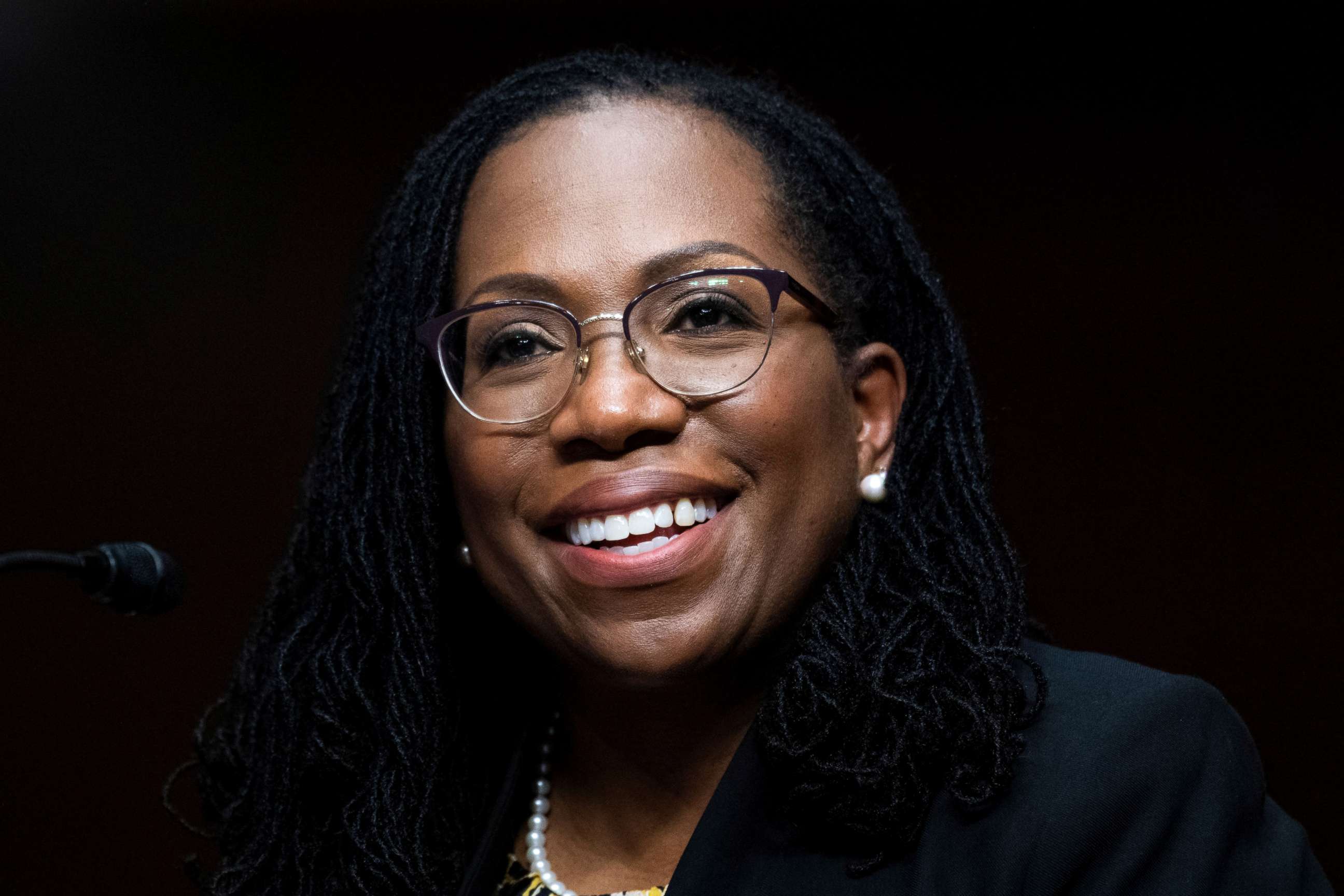
During her confirmation hearing for that position, Republican senators grilled her on whether she thought race would play a factor in her decision-making.
Jackson said when she considers cases, she is looking at the facts and the law.
"I'm methodically and intentionally setting aside personal views, any other inappropriate considerations," she said. "I would think that race would be the kind of thing that would be inappropriate to inject in an evaluation of a case."
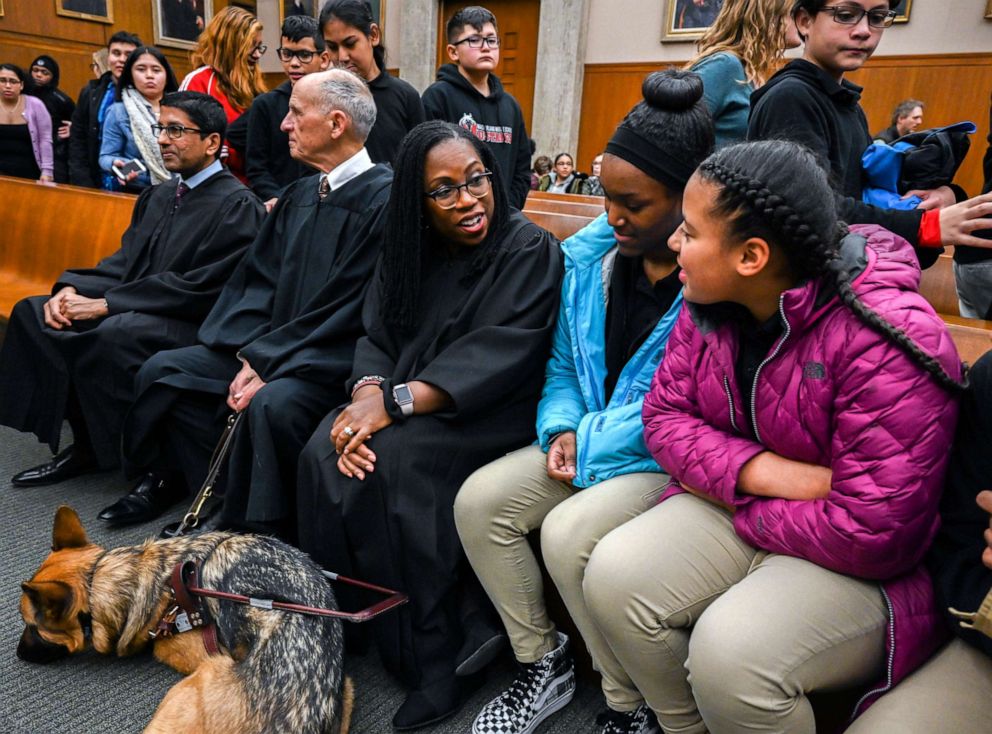
The Senate eventually made her the first Black woman confirmed to an appellate court in a decade. After her confirmation, there were only six Black women serving as judges on federal appeals courts.
She has noted she is "fairly certain" her ancestors were slaves on both sides of her family.
"It is the beauty and the majesty of this country, that someone who comes from a background like mine could find herself in this position," Jackson said during her Senate confirmation hearing last year. "I'm just enormously grateful to have this opportunity to be a part of the law in this way, and I'm truly thankful for the president giving me the honor of this nomination."
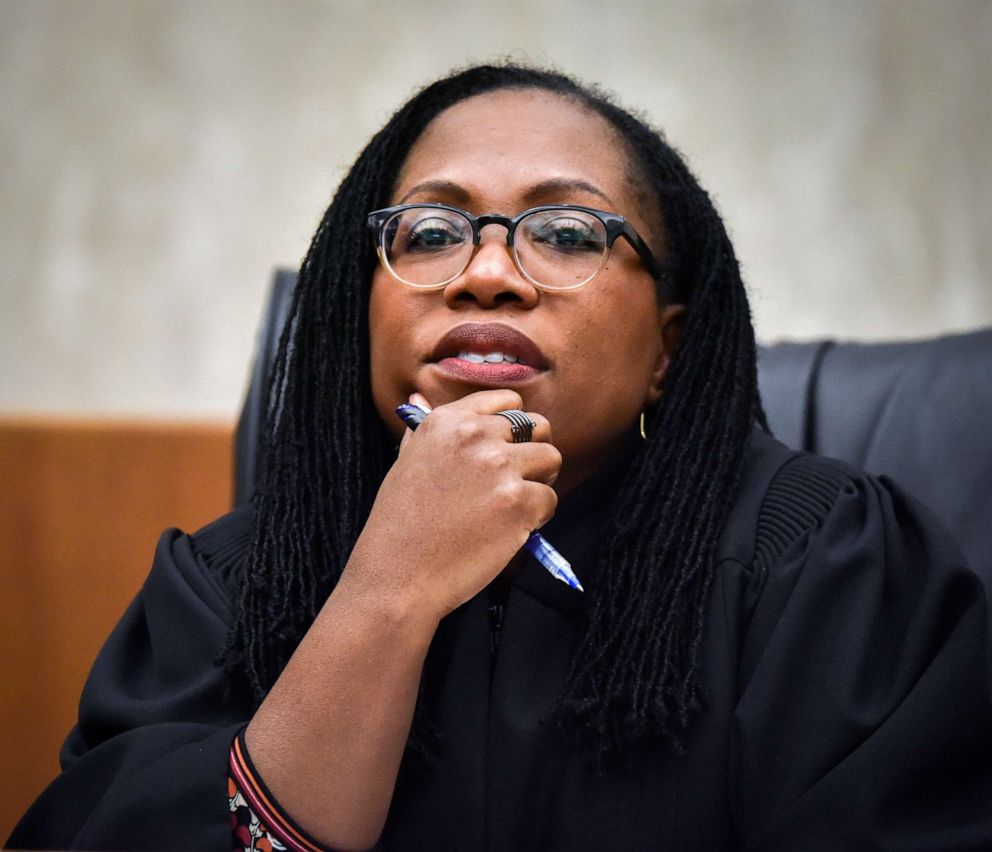
Former President Barack Obama interviewed Jackson in 2016 for the Supreme Court to fill Justice Antonin Scalia's seat after his death.
Before that, Jackson said during her speech at the University of Georgia, her youngest daughter, Leila, came to her and her husband and asked if they knew Justice Scalia had died, leading to a vacancy on the nation's highest court. Jackson said Leila's middle school friends decided she should apply.
"Getting to be on the Supreme Court isn't really a job you apply for," Jackson said she explained to Leila. "You just have to be lucky enough to have the president find you among the thousands of people who might want to do that job."
Jackson then shared how her daughter decided to write President Obama, telling him to consider her mom for the Supreme Court.
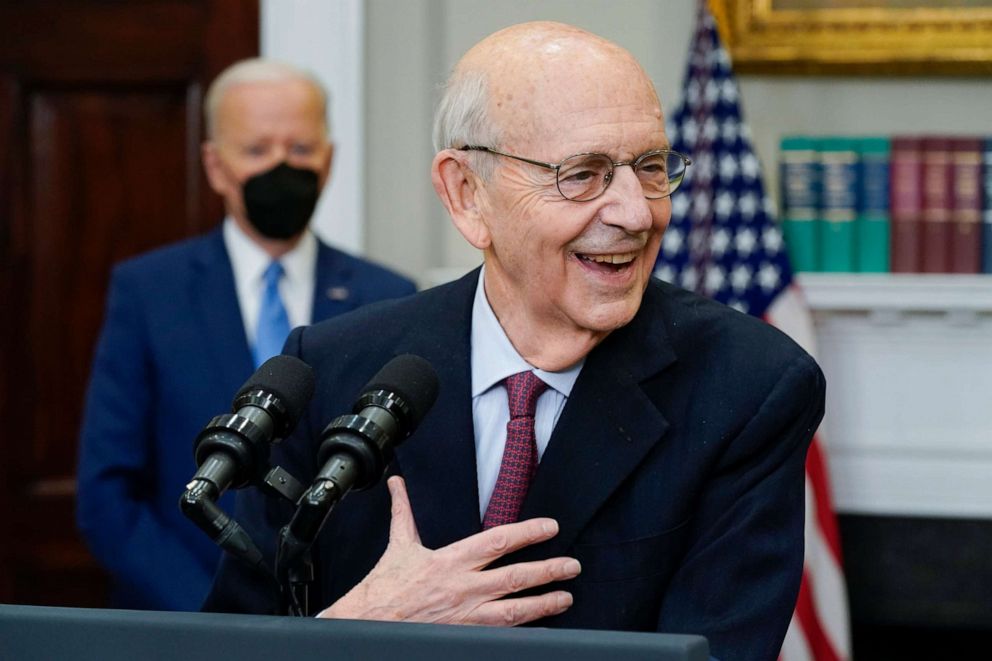
She said her daughter's handwritten note read, "she is determined, honest and never breaks a promise to anyone, even if there are other things she'd rather do. She can demonstrate commitment and is loyal and never brags."
ABC News' Devin Dwyer contributed to this report.




